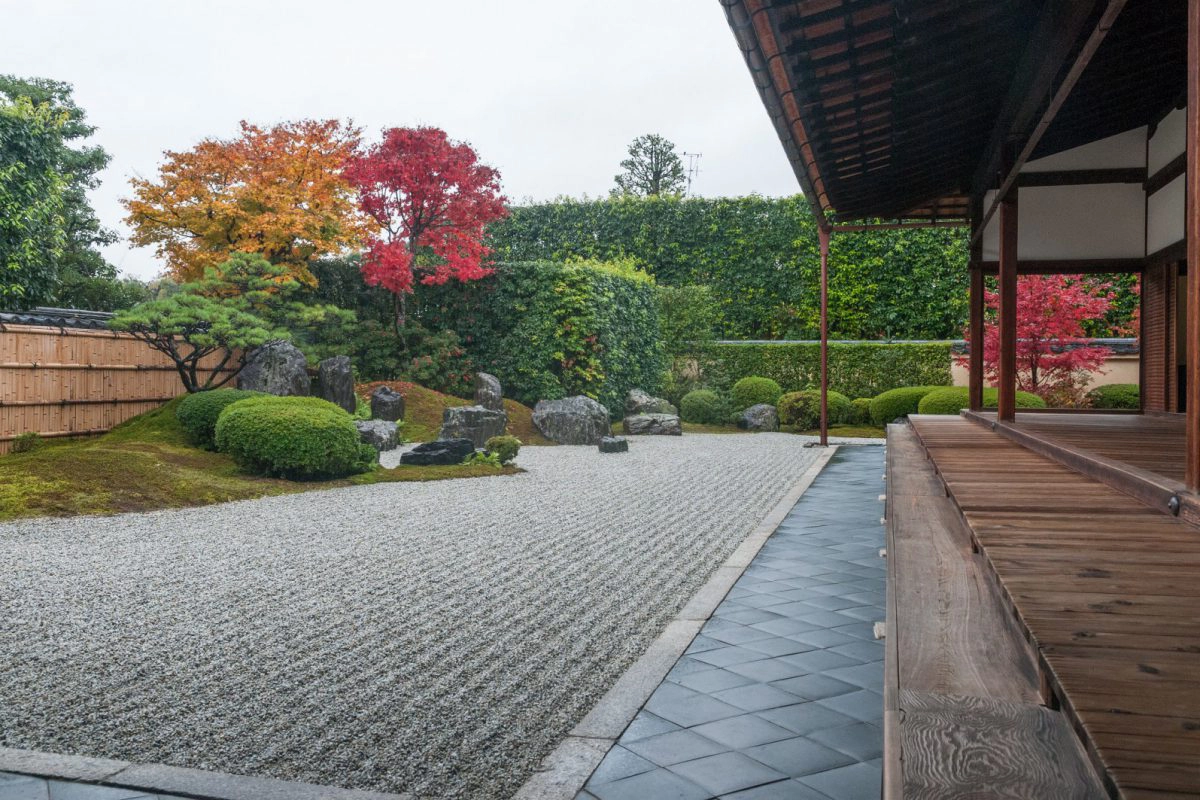Discovering Zen Serenity: Daitoku-ji, Kyoto’s Timeless Temple Complex
Nestled in the serene northern part of Kyoto, Japan, lies a sacred sanctuary that has been a beacon of Zen spirituality for over seven centuries – Daitoku-ji. This magnificent temple complex, founded in 1319 by the revered Zen priest Shuho Myocho, stands as a testament to Japan’s rich cultural and spiritual heritage. With its 23 distinctive sub-temples, each bearing its own architectural marvels and historical significance, Daitoku-ji is an indispensable gem in the tapestry of Japanese Zen Buddhism.
Daitoku-ji’s origins trace back to a time when the land was cloaked in forests, making it an ideal setting for spiritual contemplation. As the years unfolded, the complex expanded both in size and importance, attracting influential Zen monks and scholars who contributed significantly to the development of Zen Buddhism in Japan. It was during the 16th century that Daitoku-ji emerged as a hub of political power, frequented by mighty samurai lords. The temple also became a stage for cultural events, hosting tea ceremonies and poetry readings that brought together renowned figures like the tea master Sen no Rikyu.
A poignant chapter in Daitoku-ji’s history was written during World War II, when the temple suffered substantial damage. Nevertheless, it was restored to its former glory and continues to stand as a testament to Japan’s enduring resilience. Visitors today have the opportunity to immerse themselves in the profound beauty and cultural significance of this remarkable temple complex.
One of Daitoku-ji’s most renowned sub-temples is Daisen-in, distinguished by its captivating rock garden and traditional tea house. Founded in 1509, this sub-temple boasts the oldest surviving alcove, or tokonoma, in Japan – a cherished architectural element seen in modern tatami rooms. Daisen-in’s rock gardens, thoughtfully designed to resemble a Chinese landscape painting, are masterpieces in their own right. Vertical stones symbolize towering mountains, while white sand forms cascading waterfalls and streams that meander through the landscape, ultimately converging into an expansive sea of white gravel.
Another captivating sub-temple open to the public is Ryogen-in, the headquarters of the South School of Daitokuji. Constructed in 1502, it holds the distinction of being the oldest surviving building within the complex. Ryogen-in is a testament to Zen aesthetics, featuring multiple dry landscape gardens. The largest among them represents the universe, with raked white gravel symbolizing infinity and islands of rocks and moss portraying a crane and a turtle, symbols of longevity and health. The temple also showcases exquisite sliding doors adorned with images of dragons and hermits, as well as Japan’s oldest-known gun from 1583.
Koto-in, a sub-temple established in 1601 by the illustrious commander Hosokawa Tadaoki, is another captivating stop on your Daitoku-ji journey. Hosokawa Tadaoki, known for his pivotal role in the unification of Japan, rests here alongside his wife and Izumo no Okuni, the founder of kabuki theater. Koto-in’s allure lies in its enchanting maple trees that create a canopy of vibrant colors during the autumn season. These maple trees extend their beauty to the tea garden and add a touch of simplicity to the tranquil moss garden, usually at its peak during the latter part of November.
Last but certainly not least, Zuiho-in, despite being the smallest among the regularly open sub-temples, holds a history equally rich and intriguing. Founded in 1535 by a warlord from Kyushu, who later converted to Christianity, the temple’s main garden evokes the image of rough seas with its meticulously raked gravel and sharp stone islands. A garden to the rear of the main building even bears stones arranged in the pattern of a crucifix, a testament to the complex history of this remarkable place.
Daitoku-ji is a harmonious blend of natural beauty, architectural ingenuity, and profound spirituality. As you traverse its serene grounds, you’ll feel the weight of centuries of history and the tranquility of Zen Buddhism wash over you. From the captivating rock gardens of Daisen-in to the resplendent maple trees of Koto-in, every corner of this temple complex tells a unique story and offers a glimpse into the essence of Japan’s cultural and spiritual heritage.
In the heart of Kyoto, Daitoku-ji stands as a living testament to the enduring legacy of Zen Buddhism and a sanctuary where past and present intertwine in perfect harmony. So, immerse yourself in the Zen serenity of Daitoku-ji and embark on a journey of discovery, where time seems to stand still amid the beauty and tranquility of this sacred complex.
